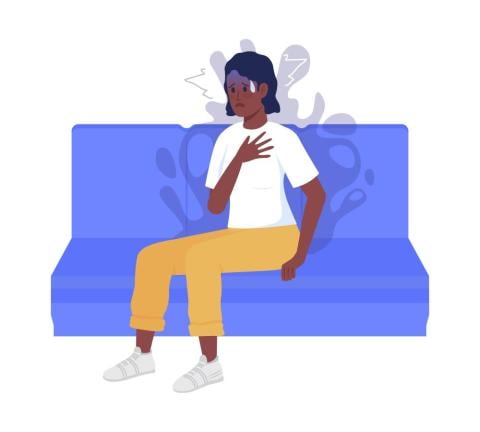Back to School: Parent Tips for Navigating a Return to In-person Class
Back to School: Parent Tips for Navigating a Return to In-person Class

Aside from the logistics of getting all the right school supplies, managing uncertainty is likely going to be the greatest challenge for returning to in-person school this fall. Anxious brains tend to be incredibly creative ones that focus on all the potential things that might go wrong. Not knowing what to expect also increases stress. Both anxiety and stress tend to lead to avoidant behaviors (e.g. procrastinating, putting off tasks until they become urgent). Specific tools and strategies may help streamline the return to in-person learning this fall.
Accept uncertainty: Rather than trying to reassure your child that nothing will go wrong, acknowledge that feared situations are possible. Instead, you could ask “what are your biggest worries? How likely are they to occur? What else might happen?” By acknowledging feared consequences, we make them less scary and open the door to more flexibility of thinking, including consideration of positive and neutral outcomes, which the anxious brain tends to overlook.
Validate and normalize emotional reactions: Changes in routine are hard for everyone, including adults. No one ever benefited from advice to stop having their feelings. Rather than saying “don’t worry about it!” try “changes can be hard. I had a hard time the first time I (e.g. started a new job, moved to a new city, etc.).”
Make room for emotions: Labeling emotions makes them less overwhelming and helps empower kids and teens to communicate about what’s happening internally. You can ask directly- “what are you feeling right now?” or say “it looks like you are feeling X. Is that right?”
Pause the problem-solving: It’s normal for parents to want to fix difficult situations for their children. However, this sometimes misses an opportunity to empower children and teens to accept their own emotions. You can ask: “would you like some ideas for ways to handle the situation, or would you like a listening ear?”
Reinforce brave behavior: Doing things that are scary is *hard* - in order to encourage brave behavior we can use labeled praise (e.g. “I’m proud of you for meeting with your teacher even though you were nervous about it”), or by celebrating with a reward system. Rewards should be clearly discussed ahead of time, and appropriate for the level of challenge (i.e. small challenge equals small reward, big challenge, big reward.)
Redirect anxious behavior: Anxiety tends to fill up whatever container it’s given, and individuals who are anxious tend to ask a lot of questions and seek reassurance. Rather than responding (“it’s all going to be fine”), ask your child or teen: “what have you already tried? What would you like to try next?” Refocusing on coping skills can shift the conversation towards empowerment rather than dependence on parental interventions.
Limit avoidance: Anxiety and avoidance are two sides of the same coin. Using a lovingly-firm approach can increase confidence. Try saying “I know this is hard, and I’d like to knock some stuff off our school to do list. Would you rather X or Y today?”
Rehearse re-entry: If your child is feeling anxious about the return to school, make a hierarchy of brave behavior: drive by the school, visit the playground, schedule a tour of the school, meet with guidance counselors, and talk about what to expect.
Communicate concern: Communicating directly with guidance counselors and establishing any academic accommodations can help start the school year off on the right note. Teachers and school staff are used to having conversations about mental health and will be more likely to help your child effectively if they know some of the concerns.
Align interventions: If your child is meeting with any supports outside of the school, such as a therapist, executive functioning coach, psychiatrist, etc., it can help to make sure that everyone is on the same page and working towards the same goals. Sign releases of information and communicate with your treatment team what information you would like shared or kept private.
Using these strategies won’t prevent all obstacles but may help increase confidence and comfort about the return to in-person learning!


















